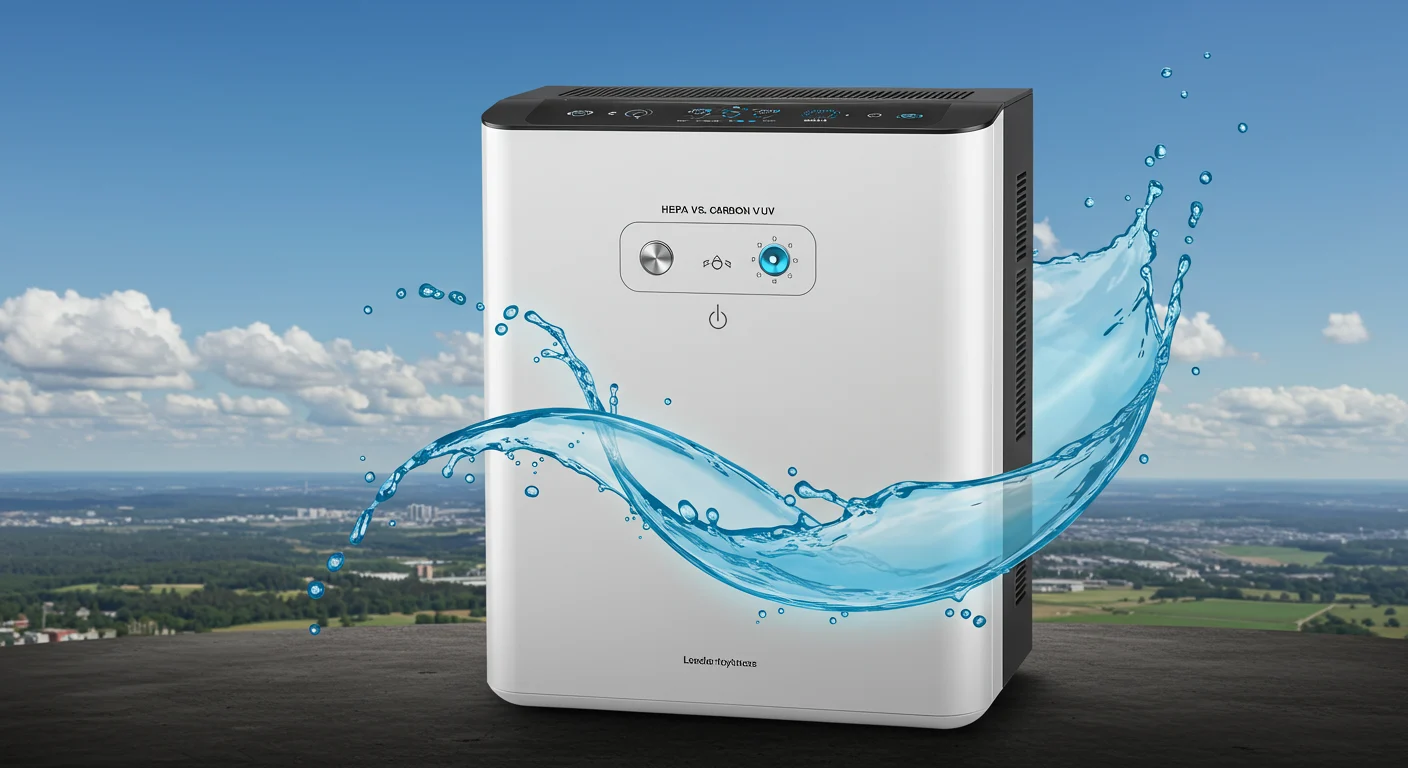
HEPA vs. Carbon Filter vs. UV: Which Filter Do You Need?
If you’re stuck choosing between HEPA, carbon, and UV, you’re not alone. Here’s the thing—each tackles a different kind of problem. Once you know what’s in your air (dust, smoke, odors, germs), the choice gets easy. I’ll keep it simple, compare hepa vs carbon filter without fluff, and tell you when UV actually helps.
Quick primer: how each filter actually works
HEPA is a mechanical net that traps particles as air pushes through—think dust, pollen, pet dander, spores, smoke particles. Activated carbon is more like a sponge for gases and odors; it adsorbs VOCs from paint, cooking smells, litter box funk, that new-couch off‑gassing. UV (usually UV‑C) doesn’t trap anything. It inactivates microbes with light, but only if the dose and dwell time are high enough. So in a hepa vs carbon filter showdown, you’re really comparing particles vs gases. Different jobs, different heroes.
HEPA: what it catches (and what it can't)
True HEPA (H13 or better) removes at least 99.97% of particles down to 0.3 microns—the “hardest to catch” size. It also grabs many particles smaller than that thanks to diffusion. Translation: allergies, wildfire smoke particles, dust, pet dander, and a lot of bacteria get snagged and stay there. What HEPA won’t do: remove odors or chemical fumes. If your room smells like last night’s stir‑fry or fresh paint, HEPA alone won’t fix it. Between hepa vs carbon filter, HEPA wins for particles every time.
Activated carbon: odors and gases are its playground
Carbon adsorbs molecules that HEPA can’t: VOCs from cleaners, new flooring smell, cigarette odor, pet funk, even some sulfur compounds. The catch? You need enough carbon mass and enough contact time. A thin “deodorizing” sheet won’t do much. Look for a thicker bed (pelletized carbon or a heavy honeycomb) so smells don’t just sail through. And no, carbon doesn’t tackle pollen or dust—that’s the HEPA lane. If you’re comparing hepa vs carbon filter for wildfire season, the best answer is both: HEPA for soot particles, carbon for that smoky odor.
UV‑C and PCO: the lab vibe, with caveats
UV‑C can inactivate microbes, but only with enough dose and time. Many consumer purifiers move air quickly, so the light doesn’t hit long enough to do much. Some units add photocatalytic oxidation (PCO) to break down gases; real talk, it can help but sometimes forms trace byproducts if not well‑engineered. Also note: UV doesn’t remove particles or odors. If you’re choosing between UV and the hepa vs carbon filter combo, I treat UV as a nice‑to‑have, not the main course.
So... which one do you actually need?
Allergies or dust sensitivity? Go HEPA first. You’ll feel it in your nose and eyes pretty fast. Odors, cooking smells, or that “new stuff” chemical whiff? You want activated carbon alongside HEPA. Wildfire smoke? Both again—HEPA for the fine particles, carbon for the smell that lingers in fabrics. Germ concerns? Good HEPA helps reduce airborne particles that carry microbes, but focus on a solid purifier plus ventilation; UV is optional. If you’re still stuck on hepa vs carbon filter, ask yourself: do I smell it (carbon) or see/feel it (HEPA)?
Buying without regret: a quick real‑world cheat sheet
Match the purifier’s CADR to your room size (bigger rooms need higher CADR). Look for True HEPA (H13 or H14), a sealed design (so air can’t leak around the filter), and a real carbon bed with some heft. Check noise at the speed you’ll actually use—no one runs “turbo” while watching TV. Glance at replacement filter prices and schedules: HEPA often lasts 6–12 months, carbon 3–6 months, depending on air quality and run time. And avoid anything that produces ozone on purpose. Believe it or not, the simple machines with great filters usually win.
Care and upkeep (so it keeps working)
Vacuum or rinse the pre‑filter monthly if it’s washable—it catches hair and big dust so the HEPA lasts longer. Replace HEPA on schedule or when airflow drops and allergies creep back. Swap carbon when odors return or the manual’s time window closes; once saturated, it’s basically a hitchhiker. If you’re running 24/7 during wildfire season, expect faster wear than the box suggests. Little habit, big payoff.
Bottom line
HEPA tackles particles; carbon handles gases and smells; UV is optional seasoning. If you need a simple rule for hepa vs carbon filter: pick HEPA for allergies and dust, add carbon for odors and smoke, and only pay for UV if the rest of the machine is already excellent. Want easy picks that don’t waste your money? I’ve rounded up my favorites in Consumer's Best purifier reviews—practical notes, no hype. If you’re shopping today, peek there first and buy once, happily.





